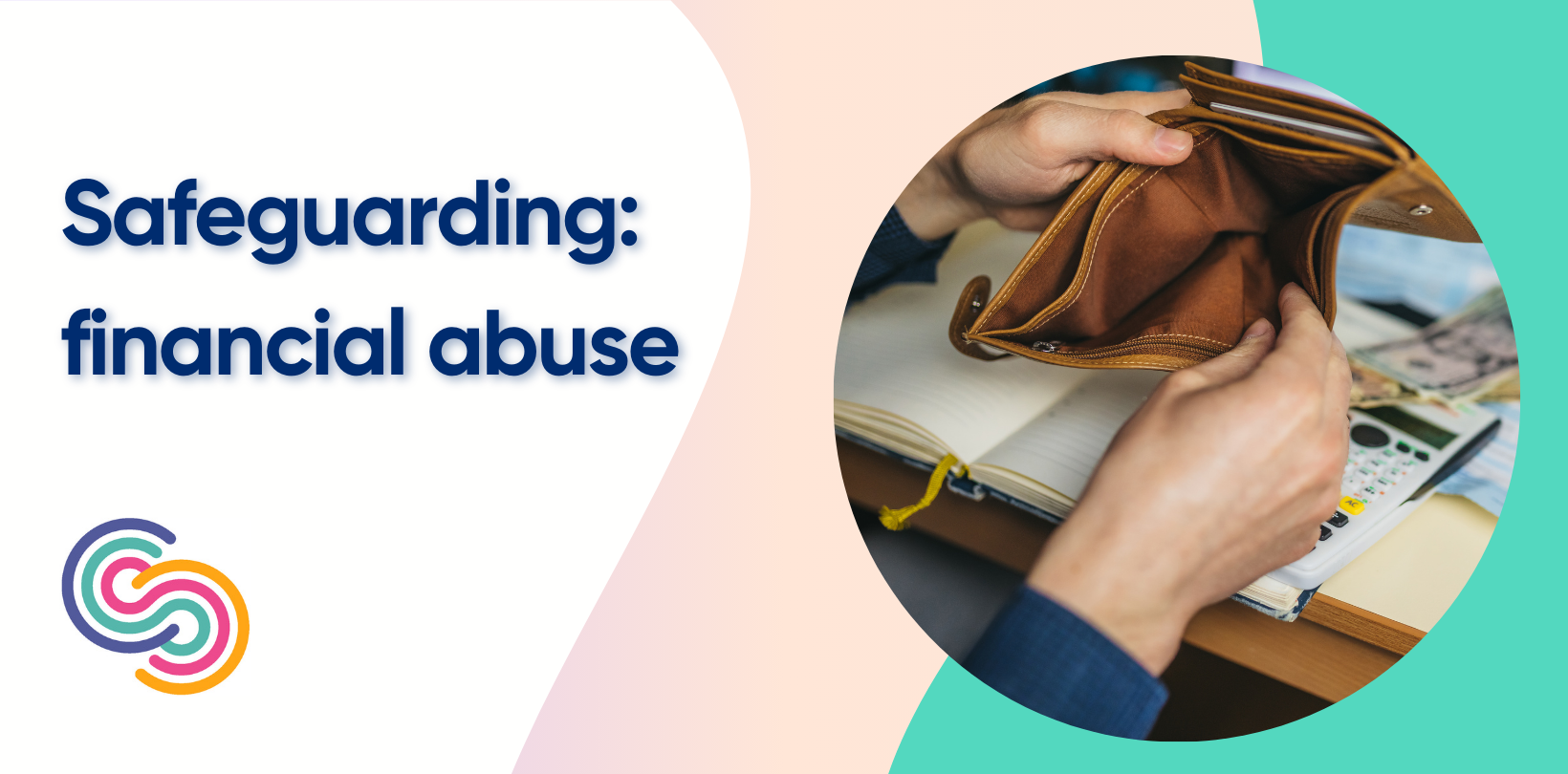News
Safeguarding Adults: Financial Abuse

What to look out for to help recognise and prevent financial abuse.
Safeguarding Adults Week took place this month to raise awareness of the importance of safeguarding practices. The annual campaign is led by Ann Craft Trust.
As part of Safeguarding Adults Week, Choice Support delivered staff training on financial abuse of people in supported living accommodation.
Here, we offer tips on what to look out for to help recognise and prevent financial abuse.
What is financial abuse?
Financial abuse refers not only to direct theft of a person’s belongings, but also includes defrauding, coercion or misuse in relation to money or other property.
This includes putting pressure on a person to change their will, the prevention of a person from accessing their own money or benefits, or financial exploitation such as living rent-free in a person's property without their consent.
For people in supported living, financial abuse might look like a neighbour or carer pocketing goods (including on buy-one-get-one-free offers) when doing a their food shop, buying financial goods in someone else’s name without their knowledge, or a support worker using a person’s washing machine to wash their own clothes without permission.
Financial abuse also includes cuckooing, which refers to the exploitation a person by using their house for activities such as drug dealing or other forms of antisocial behaviour.
Financial abuse is recognised and safeguarded against by The Care Act 2014.
What are the signs of financial abuse?
Financial abuse can manifest gradually and therefore warning signs can easily be overlooked. This is particularly the case where coercion is involved, for example where money has been lent and not paid back.
Signs that might signify that someone is being financially abused also include changes in their behaviour in relation to how they spend their time and money. You might notice someone becoming increasingly anxious about their finances for unknown reasons, or that they are more isolated from friends and family members than they used to be.
Someone struggling to pay for their care, accommodation, bills or food could be another warning sign. You might also notice a deterioration in a person's living conditions, for example of their home environment or clothing.
How can financial abuse be prevented?
Anyone can be vulnerable to financial abuse.
One prevention strategy against it is to be conduct regular audits of a person’s finances. Checking bank statements regularly means you can spot any anomalies or unusual activity, which could indicate financial abuse, as soon as possible.
Significant and sudden changes in financial practices can increase the risk of abuse. For example, Choice Support found that banking practices changed almost overnight during the Covid-19 outbreak. This can make established safeguards ineffective. Prevention of financial abuse means being ready to review and make changes to safeguarding practices quickly.
Someone who only has one bank account may be at greater risk of financial abuse, especially where others have access to their bank statements, because their finances are easier to track and therefore also to exploit. Consider whether opening additional accounts, such as ISAs or savings accounts, would better meet the person’s best interests.
The closure of bank branches has meant that some support staff have found it more convenient to withdraw money for multiple people in one visit to a bank, or to withdraw large amounts of money at one time. But this has also increased the risk posed by muggings, which are often targeted. It’s important to be aware that convenience can come at the expense of good safeguarding practice.
Learn more
For more information, please visit Ann Craft Trust’s webpage on financial abuse.
Age UK also has information and advice on financial abuse.




